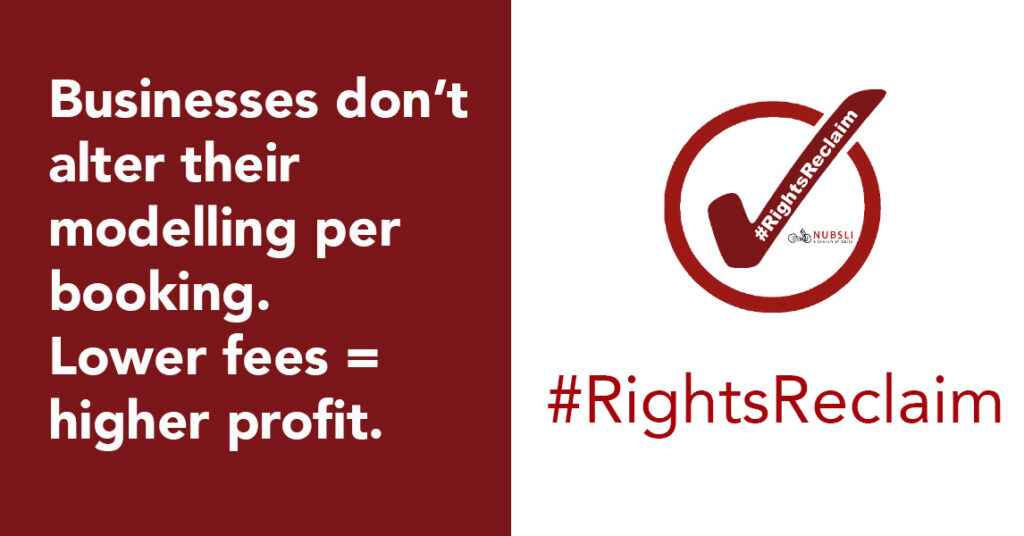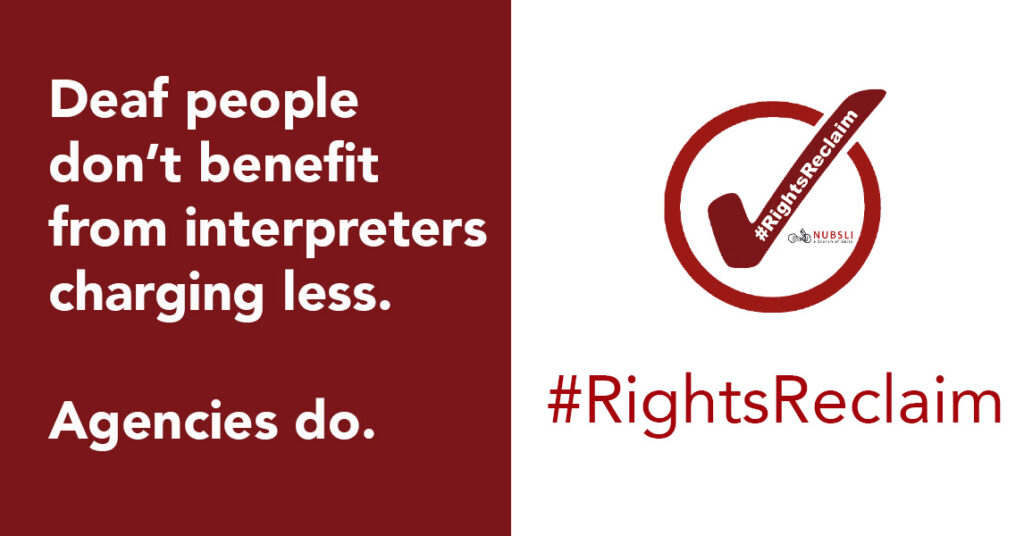During the global pandemic, it has become clear that there are an awful lot of us who just don’t understand the basics about how businesses are run or how financial modelling works.
Take for example, the interpreter that says “it helps the deaf person if I work for less”. Or the one who says “the agency told me their budget could only go up to £X”.
Wrong. No doubt!
Businesses need to have a clear understanding of their expenses and how much the service costs to deliver (operating costs). They will need to add tax and allow for a profit margin on top of that. It would be impossible to run a viable business on a booking by booking basis. It just couldn’t and wouldn’t work.
To set up an agency you need to know how much interpreters are charging. The most sensible option here, would be to plan on the basis of the highest fees. From that point, you would need to work out how much it costs you to run the business and calculate how much you need to add to any booking in order to cover that, plus how many bookings you need to achieve. Most businesses will add a profit margin of 10%. So …
| Interpreter charges* | £150 |
| Admin fee | £30 |
| Profit | £15 |
| Subtotal | £195 |
| VAT @20% | £39 |
| Total charge to customer | £234 |
*This is for illustrative purposes only and is not intended to reflect current fees or be treated as a real life example.
This admin fee will cover operating costs, such as salaries and other overheads. Profit margins per booking may be around 10% and therefore £15. Charge to customer: £234.
Not all interpreters will charge short duration fees, so the agency needs to calculate their costings based on the higher half day fee. The average fee may likely be less than £150, but in order to make sure they can cover their costs, they will have had to budget for the highest expected fee.
If the agency can get the interpreter to do it for £90 (short duration fee), they are making an extra £60, so would earn £75 in profit for one half day booking.
Do you think that an agency would go back to their customers and say “oh, actually, we only got charged £90 when we’d expected to have to pay the interpreter £150, so here’s £60 in savings”?
It’s unlikely to say the least.

How can agencies afford to take contracts under national frameworks?
One case study we can look at is Pearl Linguistics; the agency who famously went out of business as a result of the national frameworks. The way in which these contracts are set up means that there is no indication or guarantee of the number of customers they may get, or the frequency of these bookings. In such a situation, it would be impossible to manage your cashflow. Not knowing when, or how much you would or could expect to be paid is not a viable business model.
This is one of the reasons that the larger spoken language agencies tender for these contracts, or even take BSL as a loss-leader (where they are happy to make a loss delivering these services), in order to make money on other parts of the contract (e.g. spoken languages).
In summary, the amount you are paid won’t alter the amount the agency charges. Please consider this when you are asked to lower your fee, or told that the agency can’t afford to pay that amount.
It helps the deaf community if I charge less.
How? In charging less, you are allowing agencies/businesses to believe that others will do the same. It is creating a false representation of what people charge. The long term impact of this is that people who need to book interpreters won’t budget adequately and this will lead to a decrease in access.

There is a false narrative that people can’t afford interpreters. They can. They need to ensure access costs are considered as a core business cost and not an add on/after thought.
Take Disabled People Against Cuts (DPAC), an unfunded campaign group. DPAC regularly book BSL/English interpreters and pay the industry rates (following NUSBLI’s Fees Guidance) for their events. If they are able to make it work, then any business surely can.
Ultimately we are all our own businesses and it is entirely your choice on what your fee should be. The only ask from your colleagues is that you please ensure you are well informed before making these decisions.

